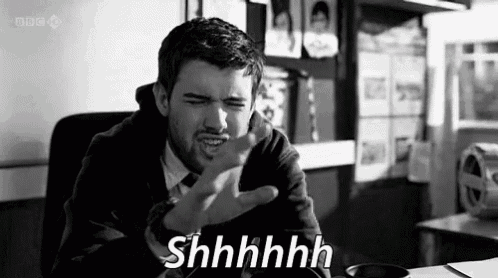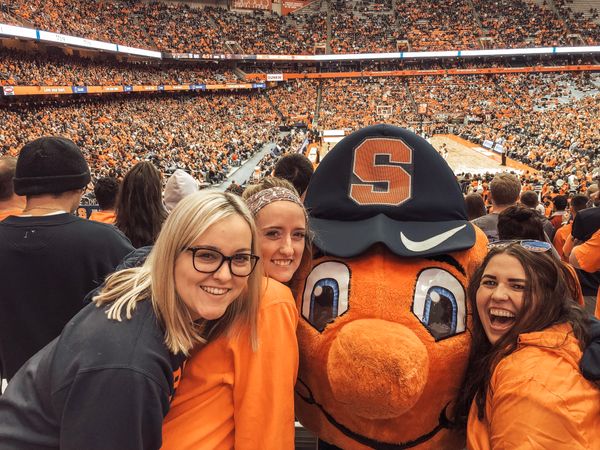What do you want to do with your life?
Life wouldn’t be the same if this question didn’t consume every aspect of it. In fact, this question comes in several different forms. Here’s two of them:
Where do you see yourself in five years?
What do you want to be when you grow up?
The first one is fair since an employer needs to know whether or not the interviewee’s goals align with the company or business. If someone is applying for Coco Cola they can’t answer the question with, “I see myself working for Disney,” that wouldn’t make any sense. On the other hand, the second question is usually directed toward a kindergartner or a middle school-er which is interesting because it makes a child think about becoming an adult. It’s very easy for a child to pick any career since they don’t know how much work goes into it. It’s even easier to say, “I don’t know.” Until that child turns 15 and gets to high school when it’s no longer acceptable to not have an answer to the other form of the question:
What are your plans after high school?
The
reason I bring up these questions is because forward thinking is a concept installed
into everyone’s minds at a very young age. It becomes the most prominent when high
school comes around. There’s a certain pressure put on teens to pick a career
path before those four years are over. The teens that have no idea what they
want to do are put in a tough spot. It becomes even worse when they choose a
career they’re really passionate about, but then get talked out of it. I can’t count how many times I heard someone
dismiss an English major or an art major because those careers, “Don’t make a
lot of money.”
But, aren’t we suppose to choose our career based on our interest or our talent, Mr/Mrs, Teacher?
Now, I am not anti-plan
ahead. There’s nothing wrong with making goals and I do understand that
teenagers will have to leave their parent’s house one day. However, I am
against the pressure put on teens to know everything at such a young age. There
is still so much to learn about themselves. Not to mention that high schools
need more helpful classes that actually teach about real life issues like
taxes, internships, how to deal with college expenses without wanting to drop
out, etc. so that students can actually learn how to survive in the real world.
The Chicago Board of Education is willing to spend around $1 million in 2020 to
get career coaches and other sources to help students prepare for life after high
school. However, they are making leaving high school more difficult with the
new graduation requirement.
In 2020, students will
have to either have a job offer, military enlistment, an internship or get into
a college or join a gap year program in order to graduate. The law does show
that the school system cares about their student’s. It can be a real improvement
to the education system because the counselors will be aiding the students more.
However, it raises a concern. The Teachers Union President, Karen Lewis,
describes it best when she says “…what do kids know what they want to do at or
accomplish at 17 years old.” As I mentioned earlier, not all teens have an idea
of what they want to do. Not every student wants to jump into a career directly
after high school, which seems rare since anything besides college or a job is
not the norm. Some students want to travel with their family and let
exploration inspire their future goals. While some want to focus on charity
work or a hobby which can lead to a lot of opportunities as long as they work
hard. I understand that they only want what’s best for their students, at the
same time, the school board is limiting what a student can do. This is what the
school board is saying in my opinion:
School board: “You want your diploma? Here are your few options.”
Student: “Actually, I was thinking of-”
School board: I do agree with their idea to hire more counselors to talk to students because that could guide students in the right direction, but ultimately the final decision should be up to them regardless of the popularity of their choice. Assuring that every student gets a college acceptance letter or a job offer, shouldn’t be any high school’s responsibility. High school should be a place of encouragement so students can really consider what they want to do rather than adding stress by threatening to hold their diploma after years of hard work. A students plan is a personal decision that should really only be discussed with their parents.
Looking ahead can be
scary for a lot of teens. There’s the fear of failure, of choosing the wrong
career, being in debt and the list goes on. Patience is the key to dealing with
an undecided teen. Give them space to think independently and it’ll all come
together in time.
For additional
information on the Chicago grad requirement visit: https://www.washingtonpost.com/local/education/chicago-wont-allow-high-school-students-to-graduate-without-a-plan-for-the-future/2017/0/03/ac197222-5111-11e7-91eb9611861a988f_story.html?utm_term=.908089e24591.




















